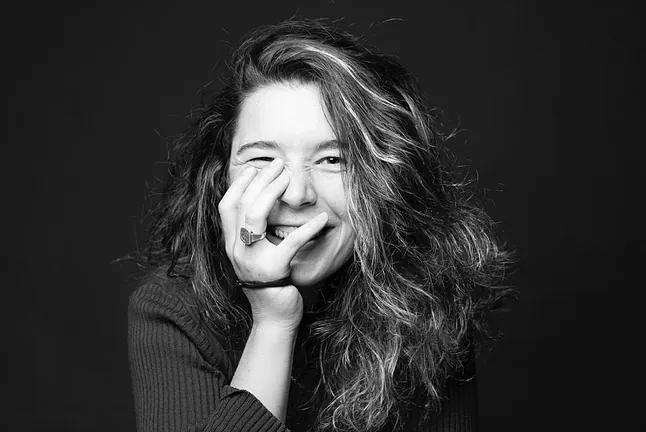A region, Ludogorie - or Deliorman, its original name in Turkish - so isolated that, until the 20th century, it did not even appear on maps. An area of Bulgaria where different ethnicities coexist (Turks, Roma gypsies, Jews, Bulgarians) for centuries. Under the former Ottoman Empire, under the later Soviet yoke, and today, "an abandoned territory" of wild forests and sheep farms that, like our Empty Spain, pushes many to leave.
This is the setting where, in part, the novel Caravan for Crows (Automática Editorial) by the Bulgarian writer Eminé Sadk (Dúlovo, 1996) unfolds. She was in Madrid last May to present the Spanish translation of her first novel, written at 23 during the pandemic.
The protagonist is Nikolay Todorov, a Geography teacher in his forties who has just won a European award to renew the educational context of the small Bulgarian town where he works. He comes from the countryside.
The story begins on Todorov's big day, a single, skeptical, but also tender and kind-hearted man internally (which Sadk manages to convey). The mayor and the school director have organized a celebration to mark the award news, and Todorov, after crossing the market and meeting various characters (the Cobbler, the Sheriff, the lady) along the way, manages to reach a banquet where he must deliver a speech praising the local traditions (something he does not feel like doing at all). His distress is such that when he opens his mouth, he only manages to vomit.
A character sometimes comic and sometimes tragic that made the author wonder if it would fit when she was proposed her first translation, which was into Spanish. "I was really worried about how it would be accepted by foreign readers because life contexts are different, but then I thought, don't we live in the same Europe? I know that in Spain, too, there are differences between urban and rural areas, that you also have isolated and empty places...," she recounts via a Zoom video call the day before traveling to Madrid.
She believes that "the book can work" in our country and explains that Ludogorie, the area where her character was born and she herself "was abandoned after the Black Plague" and that times were not better during the Ottoman rule. "It was there that Ottoman culture developed, and during both world wars, the Balkan wars, and the communist era, it was the destination of different ethnicities from different parts of Bulgaria," she contextualizes.
A scenario of stories that, in Sadk's eyes, needed to be told: "This place has its own rules, it does not follow the clock of the contemporary world. It harbors many ways of seeing life and has also seen many people leave who never returned. For me, it was very important to return to my parents' house during the pandemic."
Sadk, a professional chef, recounts that the arrival of Covid forced her to close her business and return to her hometown, just like Todorov, after his unfortunate incident at the award celebration, decides to go to Ludogorie. "Todorov reminds me of my friends born in the 1970s, who left and, in some cases, have returned. Interesting people that I wanted the world to know," she recalls.
Todorov, like the author, returns to the forgotten villages of Ludogorie and, in doing so, invites us to discover this unknown European enclave where cultural crossroads prevail. "I thought it was necessary to explore what was happening there, what kind of literature had been written about this place, and I realized that there was not much to read about this specific area, so I started writing...". And she adds, without saying it, that she feels proud: "I was at my parents' house, confused, thinking about showing the world the place where I lived, and look now, about to travel to Madrid to talk about a novel... I guess that's the power of literature, the power to connect."
Sadk was also interested in narrating how those who have two cultures but mainly live in one live. "They are people of borders, but the world has always been like that, at least that's how it has been for me. It's interesting how totalitarian regimes can somehow dissolve identity and turn you, for example, into a good communist," she reflects on the different historical dominions that still weigh on her region.
Sadk also has a cat, and she mentions that in her next novel, where she tells the story of a woman from the early 20th century who travels to different Bulgarian places, she also has a cat as a character. And for those reading these lines who may consider visiting the remote Ludogorie area this summer, the author warns: "Novels were not very popular in Bulgaria, they did not convey what the public was looking for, but now there is a new energy, new writers with new approaches. Bulgarian culture is experiencing a renaissance. And there are no big and small countries, only large cultures and oppressed cultures. My writer friends have a warrior attitude."
Eminé feels part of "something very powerful to see." "And no one is giving it to us, we are simply inventing a new world, it gives me goosebumps just to talk about it. There is a great cultural gap between my generation and the previous one, and it is beautiful to observe creation. No matter how it ends. We will say that we tried."
